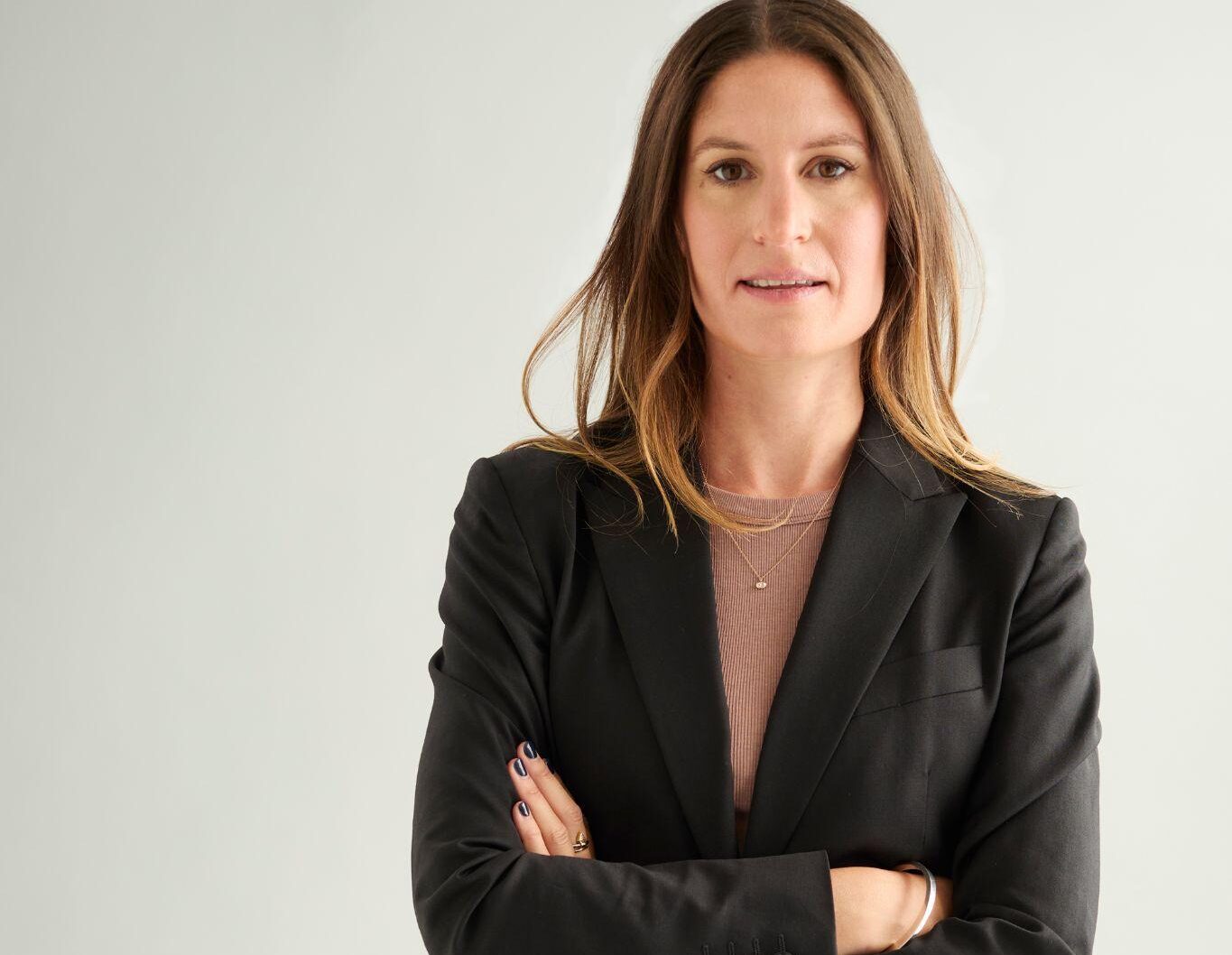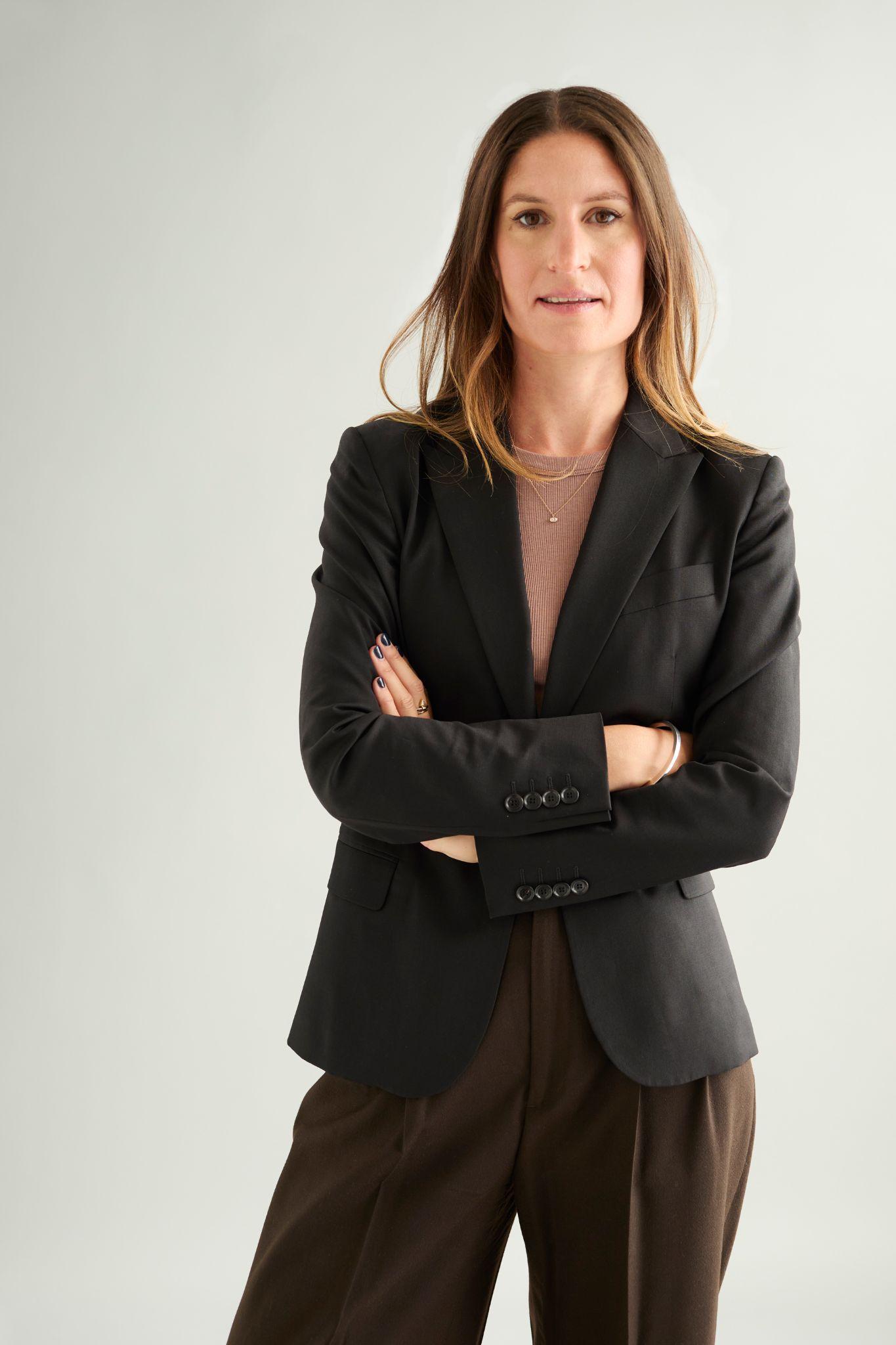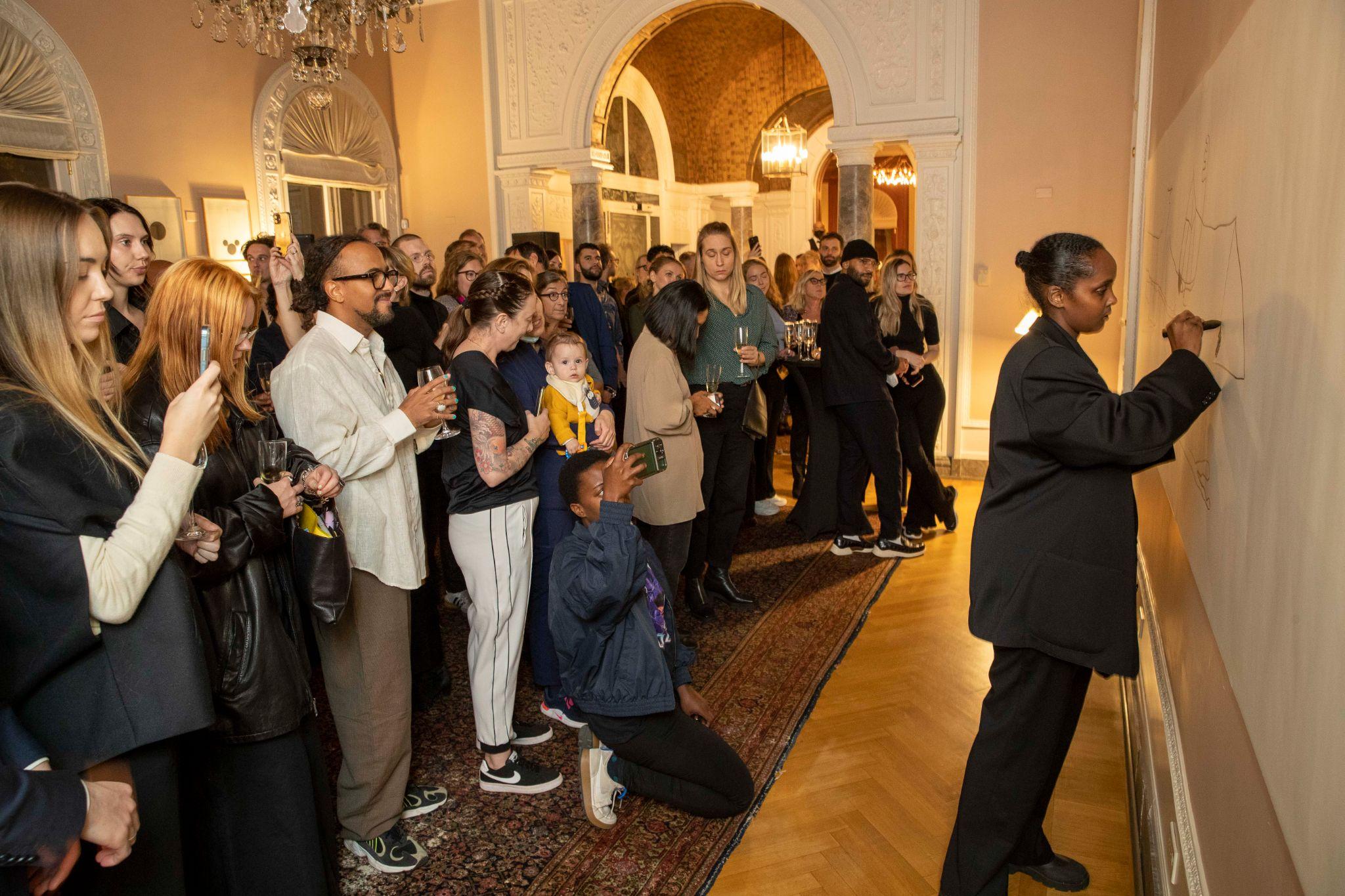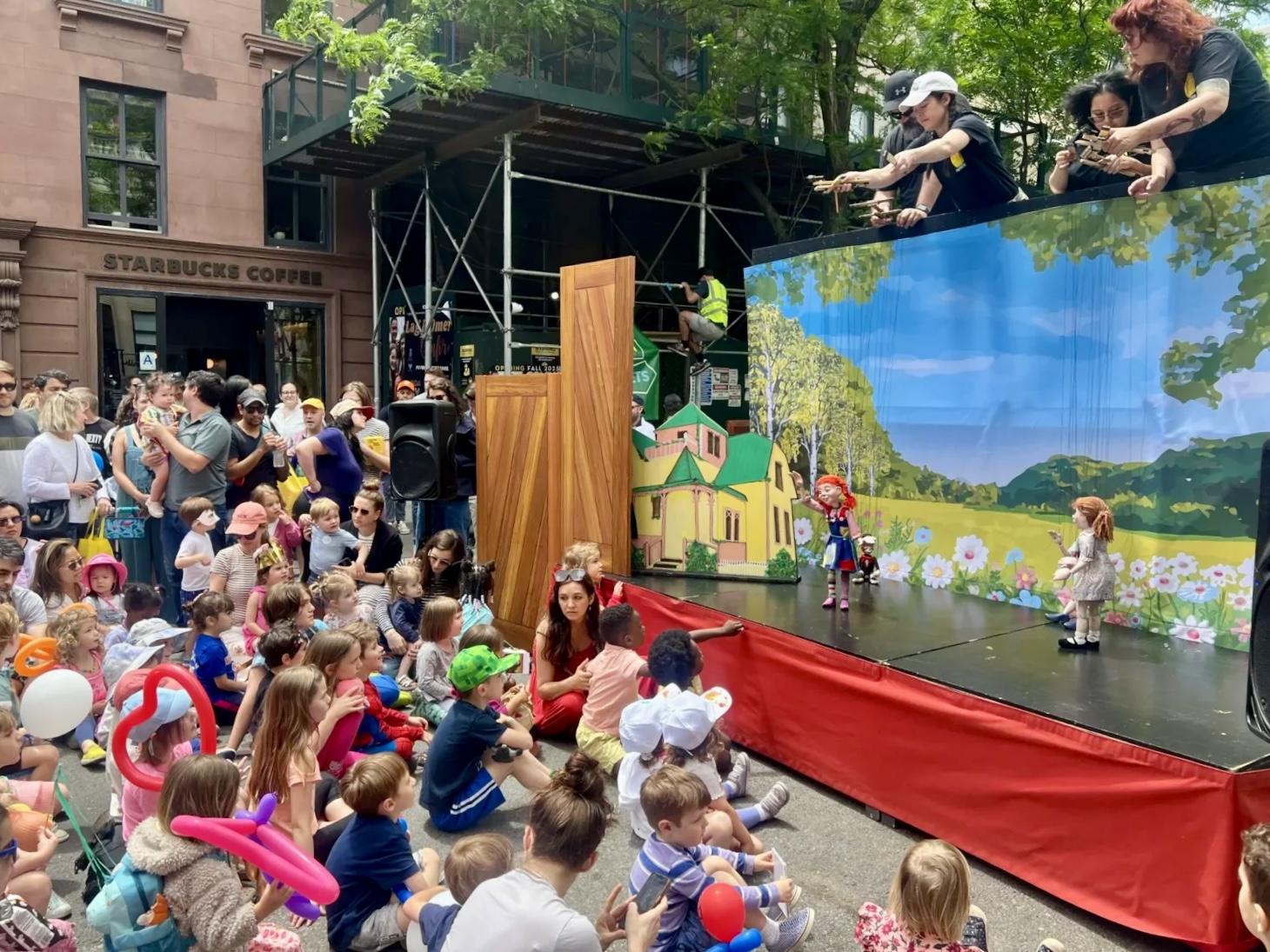“I’m the Perfect Fit:” Aviva Neuman is Sweden’s Cultural Affairs Go-To in New York


“New York attracts talent,” Aviva Neuman says as we sit outside at a café in Williamsburg, rightly so. She is the talented head of culture and public affairs at Sweden’s General Consulate in New York. A government employee who works to promote Swedish culture on the U.S. East Coast—except in D.C., where the embassy handles cultural affairs—through programming, partnerships, grants, and connecting, among other things. It is a desirable and unique role; her predecessor, Niklas Arnegren, held his position for nineteen years. “I’m the perfect fit, both Swedish and American and deeply immersed in the cultural sector,” she explains, with the confidence of a New Yorker, as she peers over the tilt of her coffee cup. I laugh, as in Sweden, the country of “lagom,” not too much and not too little, just right, it is frowned upon to express that you are better than others, even if it’s true.
Neuman has the stoicism and sincerity of a Swede, but the straightforwardness of a New Yorker. With a mandate to promote not only visual art, but also literature, film, music, and overall culture, Neuman holds an impactful role. She was born in New York, grew up in Stockholm, and returned to the U.S. for college and graduated with an M.F.A in Screenwriting from Columbia University. She worked as a screenwriter and in film production before taking the role at the Swedish Consulate: “The opportunity, scale, and the variation of people drew me back to the United States,” she says. Neuman is not politically appointed, and although her work is dependent on directives from the cultural ministry, her individual work and desire are paramount.
Sweden has long been known for its egalitarianism (including a striving toward gender equity), sustainability, and independence. However, with the current right-wing government, Sweden is experiencing a shift in its approach to culture. On Tuesday, the minister of culture announced a first-ever cultural canon, including artworks, works of literature, architecture, sporting events, and legislation created before 1975; it is highly criticized not only as creating canons is seen as outdated, but for excluding works made by immigrant and diasporic populations (many not eligible to be included due to the cut-off time) and its great gender imbalance (works by 69 men and 21 women). It is unclear if it will be taught in schools and how it will affect Swedish culture. What we do know is that Swedish and Sweden-based artists, musicians, writers, dancers, and filmmakers will continue to create interesting and boundary-pushing work, and if they choose to work in New York, Neuman can help them.
Sweden may not dedicate as much of their funding to culture in New York as, say, France, who have the Albertine Reading Room, open to the public, or the Austrian Cultural Forum, a division of the Austrian General Consulate, that organizes exhibitions, concerts, cultural events, and hosts artists and visitors in a dedicated building. However, the Swedish consulate has a schedule of recurring and popular events (like the indie concert Sweden Makes Music), and Neuman has fundraised greatly to expand the consulate’s programming since she started her tenure. New York holds an energetic quality—ride the wave, or catch the next, or the next, or the next, in infinitum—when it comes to cultural production. With less funding, cultural affairs official abroad must be more resourceful in their grassroots work, which ripples, and finding opportunities for collaboration. For the Swedes, or non-Swedes with Swedish-related programming, who get in touch with Neuman about realizing their small to large-scale projects on the East Coast, a rolodex of support in terms of ideas and connections, and perhaps a grant awaits.

Anna Mikaela Ekstrand: Has your view on culture and its importance changed since you started the position, and if so in what way?
Aviva Neuman: Culture is one of the most vital parts of any society. During sensitive or turbulent times, it’s culture and the arts that allow people to express themselves, question the status quo, and seek freedom and individuality. True culture is often ahead of its time, it reflects where society is going, not just where it is.
In terms of my position, I think it’s a great privilege to have the most interesting job in the Swedish government—that is, promoting Swedish culture on the East Coast.
You certainly have your finger on the pulse. What would you say are some characteristics, lines of inquiry, or elements that are emerging in Swedish film, music, art, dance, design, and/or culture today? Are they possible to define, and in which contexts, can one speak about “Swedishness” in these art forms?
The face of the nation has changed. The Swedish formula has become something magnificent and vibrant. To define it explicitly would be a contradiction; the strength is the multitude and not to speak about what is especially Swedish.
What do you want all New Yorkers to know about Swedes? One sentence, please!
Swedes are reliable and punctual…and trendy. We dress well.
You have tentacles reaching into many cultural spheres and different media. You are a trained screenwriter and director, so you have connections in the world of film, and you have been active in music. Your sister, Saskia, runs a new-ish and very cool contemporary art gallery (Saskia Neuman Gallery) in Stockholm and you both grew up within Sweden’s art world. So, even before taking the position, you ticked the boxes for film, music, and art. Through your work at the consulate, you also support literature, design, and dance. How do you hold all of these expressions in your mind and how do you approach the fields that you have more knowledge about and those that you have less?
New York is the epicenter and a lot of what occurs here is great, but a lot is also total crap. It forces you to constantly be alert and approach new areas. I go out, listen and absorb. Crossover between cultural disciplines is evident, it’s all linked. The key is to filter out the noise, rely on a trusted network, and learn from others.
I have dozens of scouts.

You have put a large focus on grant writing to help realize new projects, tell me more!
I’ve launched a number of new initiatives. One of the projects I’m proudest of was fundraising to purchase 8,000 Pippi Longstocking books for distribution across more than twenty New York Public Library branches in all five boroughs. We worked with NYPL for months, celebrating Pippi’s 80th birthday. The project grew into a collaboration with BRIC Arts Media’s family festival in Prospect Park. It rained, but we had tons of adorable and drenched kids with soggy red wigs on.
I’ve also built collaborations with the International Studio & Curatorial Program (ISCP), giving Swedish artists in residence the chance to present talks, screenings, and performances at the Swedish Residence in Brooklyn. Oh, and each year we host a film retrospective—Mai Zetterling, Roy Andersson, and more. We have a super exciting project coming up in 2026, but I don’t want to jinx it. You’ll have to wait.
It’s been a fantastic Pippi year. When I see the clips from the ‘70’s Swedish live-action Pippi films, I am surprised by her insolence to authority and how she stands up for herself and her friends—our ‘strongest girl in the world’ is a true rebel and breath of fresh air for kids and adults. Overall, what does it mean to promote Swedish culture and ideals that may sometimes not align with U.S. ones? And, what does it mean to promote ones that might not even exist in the U.S. yet?
The question is premature; until now, we haven’t noticed any radical change as to how we operate. That said, we are noticing early signs that certain areas could become more sensitive. As a representative of a foreign government, my role is to communicate and uphold the values that exist in Sweden, even when they might differ from, or be unfamiliar to, American audiences.
Norway, Denmark, Finland, and Sweden comprise the Nordic countries. Amongst ourselves, socially, we may bicker, but there are many linguistic and cultural similarities between the countries, and our people and governments have very friendly cultural and political ties. How do you collaborate with your Scandinavian consular counterparts?
Great! We understand each other and have a similar goal. We’re different but stronger together. We’ve pulled off some wonderful cultural events such as exhibitions at the New York Public Library, events at the Whitney Museum (focusing on indigenous arts that spans across the Nordic region), and this year, we hosted Nordic Next in Central Park, a concert part of New York City’s outdoor concert program Summer Stage.
What is something that you have learnt about Swedes and their historical presence in the United States that has drawn your attention?
I visited a place called Swede Hollow in Minnesota. Now there is nothing left, just a nature park, but it was where the first Swedish immigrants arrived in 1850. It was the poorest area, and people had to work themselves out of the neighborhood to be a part of society. So many people I met there were really proud of their Swedish heritage. Many people had never been to Sweden, yet they were so proud.
Right, there is a large Swedish cultural presence in Minnesota. Some one million Swedes emigrated to the U.S. between 1850-1920, huge for its relatively small population. More than half of people in Småland (the region IKEA is from) left due to famine caused by harvest failures and overpopulation, which led to land splitting, further exacerbating farming. Others left in search of religious freedom as the Swedish Church did not allow other Christian beliefs. I just saw the musical Kristina by ABBA’s Björn and Benny last summer, which tells this story; it’s sexy, fun, and sad all at once. Who is a Swede you would like to highlight for our readers?
Baba Stiltz, Swedish musician and DJ. He’s playing at Public Records and different clubs in NYC.
What is a Swedish film, book, artwork, or song you have been thinking about lately, and why?
I really like the Swedish writers Lydia Sandgren and Amanda Svensson. I’m excited to see actor Joel Spira’s new film 7 steg, which means seven steps, starring Swedish pop sensation Veronica Maggio. She reminds me of my teenage years.

Love her song Jag kommer (I’m Coming). The Swedish Midsummer celebration in Rockefeller Park is a must. I applaud the consulate for suggesting to bring in a DJ towards the end of the evening—the shift from traditional Swedish dancing around the midsummer pole to rocking out to Swedish pop with more of a music festival vibe is brilliant. Let’s look to the fall. What Swedish events do you have on your calendar? Personally, I am super excited about the Viagra Boys, who will play at Brooklyn Mirage on September 25.
The Consulate loves Midsummer! This year, SAS brought a real flight attendant DJ, a definite crowd pleaser.
Looking ahead, we’ve got a really interesting artist talk at the Highline with Sapmi artist Britta Marakatt Labba together with the Director Cecilia Alemani, as one of her sculptures Urmodern is on view on October 7th and a literature event with author Jonas Hassen Khemiri (including topnotch authors from around the world) on October 23rd at the Ukrainian Center. Focusing on film, we’re collaborating with Film Forum for a Bo Widerberg retrospective and then the Nordic International Film Festival (NIFF) is happening all of November. Musician Ellen Arkbo will be performing at Blank Forms in December… The list goes on. In the fal, we’ll be doing Sweden Makes Music for the 11th year at Nublu, an old jazz club on the LES. It’s our most Gen Z—or is it Gen Alpha?—event, we bring emerging artists from Sweden and it’s such a vibe. The music is always amazing, and everyone pulls up with great outfits.
Oh, also working on a wonderful event for Swedish record label Cosmos Records, which has acquired the British label Ace Records, celebrating their 50th anniversary. Ace has thousands of master and copyrights, including amazing American music from the 1940s-80s, really all kinds, from B.B. King and Motörhead to Ike & Tina Turner. Cosmos licenses out a large number of songs, mostly to major American films and TV series, but also to video games and ad campaigns. The event will include performances run on Swedish music electronic company Teenage Engineering’s equipment.
DM or follow Aviva Neuman @avivas.pic or visit the Consulate-General of Sweden’s website to learn more.
You Might Also Like
Artistry Abounds in “New Glass from Sweden” at Culture Object
What's Your Reaction?
Anna Mikaela Ekstrand is editor-in-chief and founder of Cultbytes. She mediates art through writing, curating, and lecturing. Her latest books are Assuming Asymmetries: Conversations on Curating Public Art Projects of the 1980s and 1990s and Curating Beyond the Mainstream. Send your inquiries, tips, and pitches to info@cultbytes.com.

